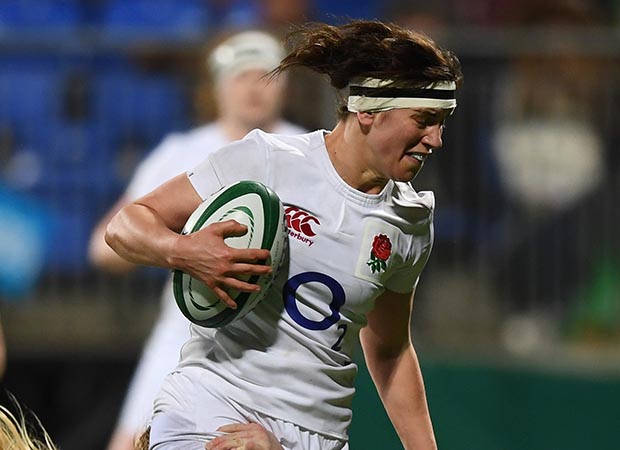 As I prepare to write this article, I have a feeling of impending doom as the last time I broached this subject everything I said was taken completely out of context and I was labelled a chauvinist against women's rugby.
As I prepare to write this article, I have a feeling of impending doom as the last time I broached this subject everything I said was taken completely out of context and I was labelled a chauvinist against women's rugby.
Nothing could be further from the truth, as much as I wouldn't want my wife or daughter to play because of the potential injury risk, I believe it is their choice and of all the sports with a potential injury risk, rugby has some of the best game management aimed at protecting those who take part.
That said, the news that England's elite women are to lose their professional contracts with the RFU is not a major surprise.
I must admit to initially being a supporter of central contracts for England women, proclaiming what a good idea it was. Particularly because I was part of the Club England committee when the men's game went professional and tried in vain to persuade the RFU to instigate central contracts for the players in the England squad and below.
However, once I have had time to reflect on the RFUs decision to offer contracts to 48 players, I realised that a bad decision had been made.
The big difference between the men's and women's game is that all of the men's elite clubs below international are professional, whereas women's are amateur.
For the men, if they lose their place in the England squad, they will still carry on being a professional rugby player at their own club. For the women, if dropped, they immediately return to amateur status in an amateur club.
Unfortunately, the women's game, although growing, does not have the levels of participants or support to be a viable professional sport.
Having said that, the efforts of the women in winning the World Cup in 2014 were no less than those of their male counterparts in 2003 or in any other competition over the years but that in itself isn't reason to offer professional contracts.
For a sport to be professional, it must have a level of support and participation that can finance its elite end professionalism no matter what the sport and who is competing. In rugby even the men's game is struggling to balance its professional books after 20 or so years of the professional rugby game.
It remains true that it's only through the vast amounts of money paid to the Premiership by the RFU for the release of players (EQP etc.) that any of the clubs make a profit, while effectively reducing the direct funding for the grassroots game.
Meanwhile, the shadow sports minister has waded into the argument by protesting a lack of commitment to the Women's game by the RFU. However, Rosena Allin-Khan has shown that she is lacking in knowledge of the game and also its finances.
Her comment, “For an organisation with a total annual revenue in the hundreds of millions, to make this decision is deeply disappointing. Surely the RFU should be focused on investing in both aspects of the women's game and should be prepared to back this up with secure contracts for both teams – 7s and 15s. After all, this is the commitment that the RFU has made to the men's game in England.” This statement is fundamentally wrong.
Firstly, the RFU doesn't make hundreds of millions and in fact, it is only in recent years they have managed to break the one hundred million pound mark but only a relatively small percentage is held as retained profit with the rest spent mainly funding the professional game.
Also, there are no contracts for the men's 15s game, only the 7s players are contracted to the RFU, so in fact, the union is bringing the women's game in line with the men's by cancelling the 15s contracts.
It actually makes the women slightly better off than the men as none of the male 7s players are part of the 15s England squad, whereas many of the women are.
What makes the impact seem so bad for the women is the fact that they have had to make a decision as to whether to give up their professional life outside rugby to pursue one in the game.
This is no different from the men who took the chance when the game went professional in 1995. Many of those men had to gamble on whether the professional game would succeed and if it did, they had to ask; would they be offered long-term contracts making it worthwhile to stop ‘proper' work?
Over the years there have been many male players who haven't had their contract renewed and have had to find another source of income as the dream of being a professional sportsperson evaporated.
It would appear Rosena Allin-Khan doesn't understand amateur sport either with her comment, ‘It should be noted that the RFU is placing the risk of playing international rugby on the players themselves… Asking players to pause and resume their professions every two years puts their futures at considerable risk.' It seems to imply that every amateur sportsperson should be paid to participate in their sport because of the risk of losing their job.
One way forward for the women would be to replace the contract with a match fee as it is in the men's game, that way they would have the same financial incentive (if they need one) to play for England as the men.


























